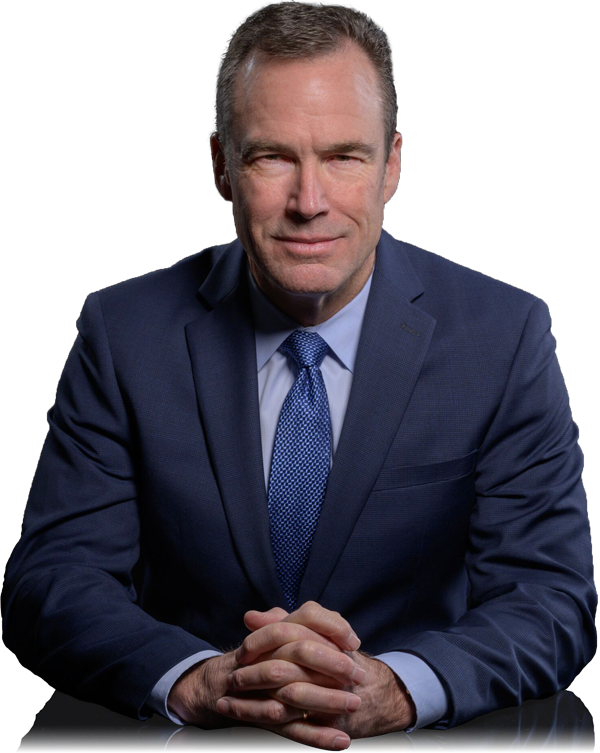Wrongful Death Attorney in Sacramento, CA
When a family loses a loved one after a sudden and tragic event, it can be devastating. When someone dies unexpectedly due to the negligence or reckless actions of another, family members may also be grappling with feelings of frustration and may not quite know what to do next. No one expects that he or she will need to consult with a lawyer but seeking out the counsel of an experienced Sacramento wrongful death lawyer is an important step after such an ordeal.
After more than two decades, the lawyers at Kreeger Law Firm have seen countless wrongful death cases and know exactly how you are feeling. Dealing with a legal suit against the party responsible for your loss can be difficult for many people, which is why our firm makes it as painless as possible to move forward with your case. The reality is that after you have suffered an avoidable loss, you and your family are entitled to seek compensation and we can help.
Call our office at 916-782-8400 to schedule a free consultation and get your wrongful death questions answered. We represent bereaved families throughout Northern California.
How Can Kreeger Law Firm Help Me?
The attorneys at Kreeger Law Firm have more than 25 years of experience handling civil claims for California clients, including wrongful death claims. We understand how devastating the untimely death of a loved one can be and we approach every case we take with compassion, integrity, and a relentless drive to help you and your family secure as much compensation as possible to make moving on a little easier.
Our firm has the strength and resources of a large, big-city firm with the atmosphere of a small family-owned business. Our Sacramento wrongful death attorneys take the time to get to know every client personally, so we can fully understand the breadth and depth of a wrongful death’s effects. If you recently experienced a wrongful death in your family, our lawyers can help you determine your best options for legal recourse.
When you choose the Kreeger Law Firm to represent your wrongful death claim in California, our team will thoroughly review all of the evidence and documentation you have to support your claim. In some wrongful death cases, plaintiffs have the right to compensation for the decedent’s losses that accrued between the time they sustained their final injury or illness and their death.
Other compensation could provide relief for the surviving family’s financial losses and emotional pain from the death of a loved one. Our team will walk you through every phase of the wrongful death claim process and help you manage the situation with more confidence.
Learn About Options To Pursue a Wrongful Death Claim
Why Should I Hire an Attorney for My Wrongful Death Claim in Sacramento, CA?
The untimely death of a loved one is not only an emotional blow but also an economic one. A wrongful death may require you and your family to make funeral arrangements you didn’t expect and lead to a host of other expenses. When another person or party causes a wrongful death, it’s essential to secure legal representation as soon as possible to maximize the surviving family’s recovery.
A skilled Sacramento personal injury attorney can handle a grieving family’s legal concerns, insurance problems, and a host of other matters so the survivors can mourn peacefully. Hiring a lawyer may seem expensive but a good wrongful death attorney can maximize the compensation a plaintiff receives from a wrongful death claim and offer a better degree of representation than a grieving survivor could manage alone.
Ultimately, hiring an experienced California wrongful death attorney to represent your case is a solid investment in peace of mind. The Kreeger Law Firm can help you determine the full range of available damages in your claim, so you know what to expect from the proceedings you’re about to face. We can provide comprehensive and compassionate legal representation when your family needs it most.
What Is Wrongful Death?
In legal terms, a “wrongful death” refers to any fatality caused by negligence or unnatural causes. This term may also apply to criminal homicide cases. If one person intentionally kills another person, the killer would likely face criminal charges from the state as well as a civil action for wrongful death from the victim’s family.
In many ways, a wrongful death case functions very similarly to a personal injury lawsuit. The major difference is that a close relative or personal representative of the victim’s estate files the lawsuit on behalf of the deceased individual. To succeed in a wrongful death claim, the plaintiff must prove that the defendant caused the death in question, either through negligence or through an intentional tort such as an assault or homicide. The plaintiff must also have evidence of the extent of the losses resulting from the defendant’s actions, including funeral and burial costs, lost income, lost valuation of investments, and the family’s pain and suffering.
Like any other type of civil claim, a wrongful death lawsuit is subject to the California statute of limitations for such claims. The plaintiff with a wrongful death claim has two years from the date of the death in question to take legal action for wrongful death. This may seem like a lot of time, but the reality is that building a solid wrongful death case takes time and effort, and the full effects of the death in question may not be fully calculable. The sooner you work with an experienced California wrongful death attorney, the sooner you can start building your claim.
How Do California Wrongful Death Claims Work?
Understanding the process of a wrongful death claim can help individuals have an idea of what to expect. When they are entering the process of seeking compensation after a wrongful death of a loved one, this can help provide clarity and decrease stress.
Eligibility Requirements for Filing a Wrongful Death Claim
A wrongful death claim exists to get compensation for individuals who have wrongfully lost a loved one if their death was due to the fault of another person or organization. To file a wrongful death claim, one of the following criteria must be met:
- The individual who files the claim is a child of the deceased.
- The individual who files the claim is a surviving domestic partner or spouse of the deceased.
- The individual who files the claim is a grandchild of the deceased if their children are also deceased.
Additionally, an individual who is entitled to the assets and property of the deceased, according to California’s intestate succession laws, is eligible to file a wrongful death claim if a child, spouse, domestic partner, or grandchild is not living.
The Statute of Limitations for a Wrongful Death Claim
If an individual is eligible to file a wrongful death claim, they have a certain amount of time to do so, which is known as a statute of limitations. Specifically, the wrongful death statute of limitations is the time between the date of the death of the loved one and the date that the claim must be filed.
In California, this period is typically 2 years. However, this can be subject to change, depending on the exact details of the case. To determine what the exact statute of limitations is for your wrongful death case, it is important to work with an experienced Sacramento wrongful death lawyer.
Proving Liability for Wrongful Death
To bring forward a wrongful death claim, it is critical to establish the liability of the individual who was responsible for the accident that led to the deceased’s death. This involves proving that the defendant acted with negligence or displayed intentionally bad conduct, causing the wrongful death.
Establishing liability for a case can include collecting specific evidence that helps bolster the case, including:
- Witness testimony
- Opinions from relevant experts
- Conversations
- Geolocation data
- Documentation
An experienced wrongful death lawyer can assist you with gathering this critical evidence.
The CA Wrongful Death Process: Deciding on Going to Trial or Accepting a Settlement Offer
To initiate the wrongful death process, it’s critical to decide whether the matter will be decided in or out of court. While there may be initial decisions to opt for a private settlement, they may move toward going to trial as the negotiations evolve.
In a settlement negotiation, the defendant and the individuals who are filing the claim may reach an agreement without getting the court system involved. If the negotiating parties cannot come to an agreement, then they may proceed to take the case to trial. In a trial, a judge or jury will decide on the outcome of the case.
How Are Damages for Wrongful Death Distributed?
If a settlement is agreed upon, or an award amount is decided on, then these damages will have to be distributed fairly. While this distribution can be complex, the damages are usually awarded based on the relationship that each person had with their loved one as well as the amount of losses that they faced.
If you are dealing with having lost a loved one due to a wrongful death, and you are unsure about how the awarded damages will likely be distributed in your situation, then it is advisable to work closely with a knowledgeable wrongful death lawyer to clarify the situation.
What to Do After a Loved One Has Died a Wrongful Death
After losing a loved one due to a wrongful death situation, you are likely facing a challenging time, and it may be unclear which steps to take next. It is generally advisable to immediately seek support by tapping into your social networks and speaking with family members. In addition, mental health support groups and counseling sessions can help you in this difficult time.
It is also critical to contact law enforcement if the wrongful death accident happened under questionable or suspicious circumstances. They can help determine the exact cause of your loved one’s death. If any other pertinent authorities were involved in the accident that caused the wrongful death, such as those in charge of a workplace or medical facility, then it is important to notify them of the incident as well.
Furthermore, it is advisable to get a wrongful death attorney. They can help advise you on how to properly handle the situation from a legal standpoint. Also, they can help you collect pertinent information and documentation associated with your loved one’s death. Furthermore, your attorney can help you decide whether a wrongful death claim or a private settlement is feasible for your situation
How Much Can You Sue for Wrongful Death in Sacramento, CA?
Different types of damages repay different aspects of a wrongful death case. For example, some damages repay the estate for lost valuation on assets, investments, and retirement funds, as well as lost income the deceased would have earned in the future, had he or she survived. Damages in a wrongful death claim may also include the medical expenses and pain and suffering related to the deceased’s final injury or illness. A qualified Sacramento wrongful death lawyer can help a wrongful death claimant understand the damages available in a claim and what to expect from pursuing a wrongful death claim in California.
It’s also important to remember that in some wrongful death cases, damages are paid to the estate of the deceased, and separate damages are awarded to the surviving family of the deceased. If the deceased had any type of estate plan, this would help to inform the surviving family of the assets and property their loved one owned as well as their wishes for distributing it.
The estate will use proceeds from the wrongful death claim to settle the estate’s debts, and then the remainder will become part of the estate to be distributed with the rest of the estate’s contents. If the deceased had no estate plan or will, the intestate succession process will begin according to California state law once the wrongful death case concludes.
Who Can Bring a Wrongful Death Claim in California?

Every state has unique laws concerning wrongful death lawsuits, the time limits for filing them, and who may file them. In California, a deceased person’s surviving spouse, partner, or children have the first right to file a wrongful death claim unless the deceased individual’s estate or living will explicitly states otherwise and indicates an executor or representative. If the deceased has no surviving kin, then a personal representative of the deceased’s estate may pursue a wrongful death claim on behalf of the deceased.
Anyone who believes they have a claim on the estate of a deceased individual or grounds for a wrongful death claim must provide proof that the death resulted in economic harm or damage of some kind. For example, a deceased person’s former spouse may have depended on the deceased for child support payments or alimony. They may also prove they were financially dependent on the deceased person to have grounds for a wrongful death claim.
Common Causes Of Wrongful Deaths in Sacramento, CA
Accidental deaths happen all the time all over the world. A wrongful death occurs when a death happens due to negligence. Some of the most common causes of wrongful death claims in California include:
- Intentional torts, such as assault and vehicular homicide.
When an individual intentionally causes physical harm to a victim and the victim dies, this is homicide regardless of whether the offender intended to kill the victim. Intent to harm, motive, and other factors may come into play against the defendant, and they will face criminal prosecution in tandem with civil action from the victim’s family via a wrongful death claim. - Motor vehicle accidents.
Car accidents are one of the leading causes of accidental death in the United States. If a driver causes a fatal car accident, they may face liability for a wrongful death claim from the victim’s family. Depending on the nature of the car accident and the number of vehicles involved, more than one party can bear liability for a wrongful death from a car accident. If a driver causes a fatal accident while under the influence of drugs or alcohol, they will likely face criminal prosecution from the state of California as well as civil action from the victim’s family. - Product liability.
Manufacturers of consumer products must design their products safely and ensure they perform as intended. They must also advertise their products accurately and include reasonable instructions for the intended use of the product. When a company fails in any of these responsibilities and a consumer dies from a defective or unreasonably dangerous product, the company could absorb liability for a wrongful death claim from the victim’s family. - Negligent security.
Property owners, security companies, and other parties responsible for the safety of others in specific locations must take these duties seriously. If negligent security leads to an individual suffering a fatal slip and fall or being killed by a third party who commits an intentional tort on the premises, the party responsible for the security of the premises may share liability for the wrongful death. - Medical malpractice.
Medical professionals must meet the appropriate standard of care for every patient they treat. If a doctor, surgeon, nurse, or other medical practitioner makes a serious mistake in the treatment of a patient, that patient could sustain extreme or fatal medical harm. If a loved one has died after a medical procedure or due to a long-term medical condition for which they were treated, the family should consider whether their loved one received an appropriate level of care and whether the death was avoidable. - Premises liability.
Property owners must ensure their properties are safe for lawful visitors. If a property owner knows of a safety hazard on their premises but does nothing to fix it or warn guests about it, someone may suffer a fatal injury. A wrongful death claim, in this case, would hinge on proving the property owner failed in their duty of care to maintain reasonably safe premises.
Essentially, any time a death occurs due to the negligent or intentionally harmful actions of another party, there are grounds for a wrongful death claim. Every state has unique laws pertaining to wrongful death claims, including who may file them, the damages available, and qualifying to receive damages.

